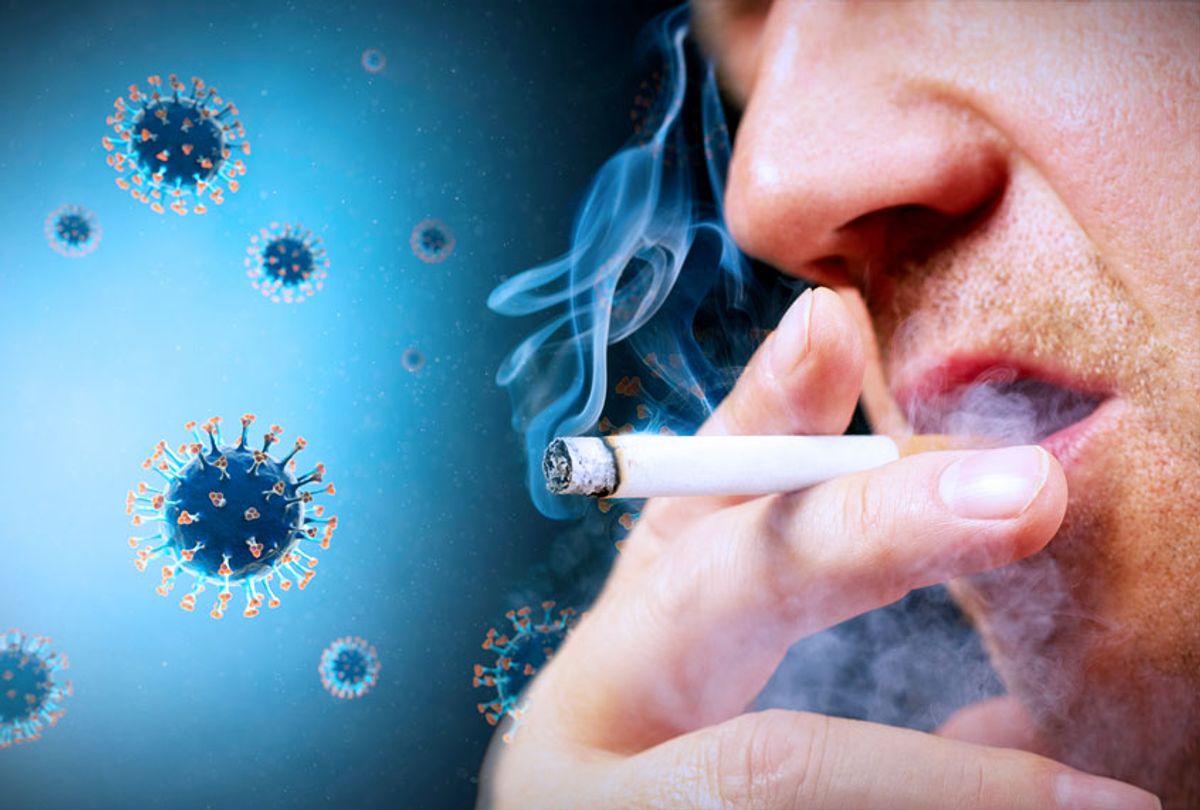A new study explains how the novel coronavirus that causes COVID-19 is able to more easily target smokers due to a specific way in which the addictive habit changes their lungs. The news appears to rebut stories that went viral earlier this month that claimed that smokers were actually at lower risk for contracting the coronavirus.
Cold Spring Harbor Laboratories Fellow Jason Sheltzer and Google engineer Joan Smith analyzed previous data findings for their article published earlier this week in the scientific journal "Development Cell." They wrote that when people smoke cigarettes, the smoke causes their lungs to produce a protein called ACE2 (angiotensin-converting enzyme 2). The coronavirus latches on to this protein and uses it to enter human cells. Sheltzer and Smith speculate that this may explain why people with a history of smoking are uniquely vulnerable to severe infections if they contract the novel coronavirus.
The good news? Because the change is reversible, quitting smoking can improve your odds of survival if you contract the coronavirus.
In the aftermath of the coronavirus pandemic, there were some studies that offered mixed feedback on the relationship between smoking cigarettes and being harmed by the coronavirus. One, which was led by Greek cardiologist and tobacco harm-reduction specialist Dr. Konstantinos Farsalinos, concluded that a "preliminary analysis does not support the argument that current smoking is a risk factor for hospitalization for COVID-19." It went on to speculate that "nicotine may have beneficial effects on COVID-19," although it added that "other confounding factors need to be considered and the accuracy of the recorded smoking status needs to be determined." Another study, led by French neuroscientist Jean-Pierre Changeux, similarly speculated that nicotine could prevent coronavirus.
Dr. Russell Medford, chairman of the Center for Global Health Innovation in Atlanta, told Salon that the potential benefits of nicotine must not be conflated with the proved risks of smoking.
"The nicotinic acid hypothesis that is the basis for all of these studies is not unreasonable from a molecular standpoint," Medford told Salon. "The data that relates to cigarette smoking to the progression of COVID-19, in the most recent study that I'm referring to, shows a significant risk of progression of disease in patients who have a current or recent or have a history of smoking. The two are not linked."
He added, "The nicotinic acid hypothesis and cigarette smoking are not to be linked together. I think that there is an incorrect assessment of the available data, that for some reason cigarette smoking is somehow protective, and it is simply not borne out by any of the data that I've seen. And indeed, a great deal of the data on meta-analysis suggests just the opposite — that outcomes and disease severity are enhanced by cigarette smoke."
In an editorial for The Hill, John Maa, M.D., the past-president at San Francisco Marin Medical Society, and Dr. Bonnie Halpern-Felsher, a professor of pediatrics at Stanford University, raised questions about the integrity of the French study by pointing out that Changeux has "ties to the tobacco industry, having previously accepted $220,000 from the tobacco industry-funded Council for Tobacco Research in the 1990s, and collaborated with RJ Reynolds and Philip Morris."



Shares